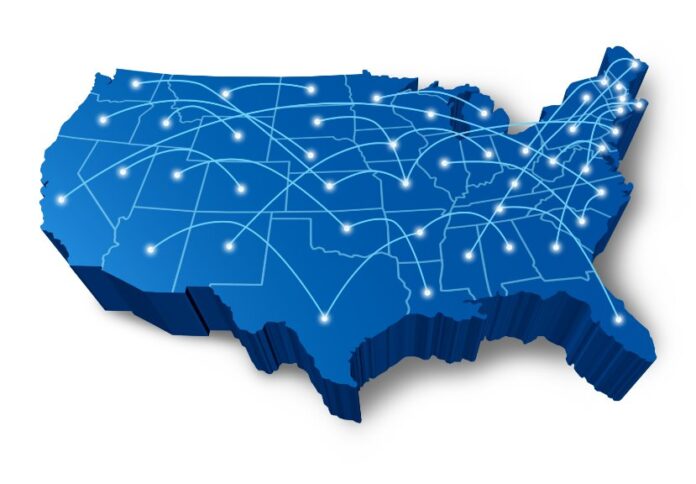An Ohio man formed a broadband company on paper that used association with the federal EBB program to defraud consumers, the FCC says
The Federal Communications Commission has proposed a fine of more than $220,000—the maximum it can impose—for an Ohio man whom the agency says used a broadband company that only existed on paper to get fraudulent payments from consumers, by claiming that it would deliver federally subsidized broadband devices and services as part of the Emergency Broadband Benefit program established during the pandemic.
According to the agency, Kyle Traxler of Ohio and his nonexistent “broadband provider” Cleo Communications didn’t actually receive any federal funds, but Traxler defrauded individual customers by claiming that Cleo would provide EBB-subsidized devices, taking payments for those devices and then never delivering them.
Traxler registered Cleo as a tradename in Ohio and obtained various business entity and tax ID numbers in early 2021, then applied to be a participating EBB provider, claiming that it provided broadband service in “54 states and territories” and that it had 500 broadband customers that it had been serving since mid-2020. While most federal subsidy programs require the participating providers to be vetted Eligible Telecommunications Carriers (ETCs), Congress authorized an expedited approval process for non-ETCs to participate in the pandemic program. Cleo applied for and received an expedited approval, but there were problems with the company’s documentation from early on. The FCC initially told Traxler and Cleo that the company’s supporting documentation for its EBB application wasn’t sufficient and nearly denied it. But then, the FCC says, Traxler provided screenshots from a second apparently fake company, KYTY Communications, that claimed to own Cleo, and invoices for service with identifying customer information removed, which was enough for the FCC to allow EBB participation.
But, the agency says, “Cleo apparently existed for the sole purpose of taking financial advantage of customers under the disguise of being a legitimate EBB Program provider. Cleo Communications has had no business activity outside of the EBB Program and no other business purpose.”
Customers seeking EBB-subsidized devices found Cleo through the official list of providers distributed by states and the FCC, then paid the company for discounted devices but never received them. The first customer complaint arrived to the FCC in late July, with a consumer reporting that they had ordered a discounted hot spot and laptop from Cleo and never got the items — and that Cleo had stopped responding to emails when they tried to follow up. A number of other consumers reported the same issue, and some said that when they filed PayPal claims against Cleo for non-delivery, they received threats that they were in “breach of contract”, that they would be sued or that they would be unable to participate in EBB with a different provider.
“He is threatening me in writing now for filing a PayPal claim since he is not sending it and still is stating he is claiming the benefit and I’ll never get to use it anywhere,” one consumer told the FCC.
By December 2021, the agency was trying to subpoena information from Traxler and Cleo of its operations and EBB-related actions. No one responded to the subpoena, and the FCC revoked the company’s participation in the EBB program. The agency received 28 complaints through its Consumer Complaint Center, another six came through the Universal Service Administration Company, and seven were filed with the Better Business Bureau of Toledo, Ohio. The FCC followed up with interviews and documentation from eight of the affected consumers, who were scattered across the country from Alabama to Washington state. As a result of the situation with Cleo, the FCC reported, some of those consumers still thought that they were no longer eligible for the federal discount program (which wasn’t the case) and one of them, after losing $50 to Cleo in payment for a laptop that never arrived, told the FCC that she “was aware she could still use the EBB Program benefit through another provider, but was not willing to do so after her experience with Cleo.”
“The harm that Cleo caused by these apparent wire fraud violations goes far beyond financial harm to the low-income consumers Cleo
and Kyle Traxler preyed upon; Cleo’s conduct erodes the trust that is necessary for the EBB Program and its successor, the Affordable Connectivity Program, to achieve their purposes,” the FCC said.

